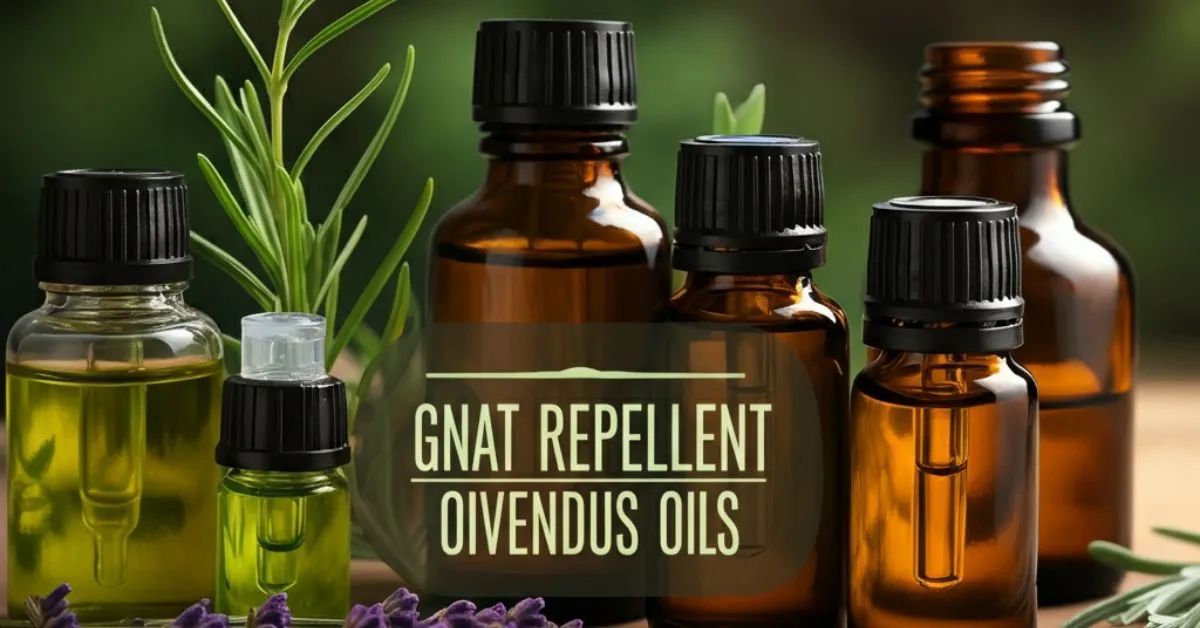Gnats may be small, but their constant buzzing can be a real headache. With Essential Oils to Repel Gnats and Natural Pest Control Guide, you can tackle these pests naturally and effectively without harsh chemicals.
These essential oils not only keep gnats away but also leave your space with good smells. In this post you’ll know how Essential Oils to Repel Gnats and Natural Pest Control Guide can help you regain your peace with ease!
Contents:
Why Essential Oils are Effective Against Gnats
Essential oils are a game-changer when it comes to keeping gnats away. They use real natural power of plants to repel these tiny pests without the need for harsh chemicals. And also they’re safe, eco-friendly, and have fantastic smell.
- Natural insect-repelling properties of certain essential oils: Certain essential oils, like citronella, eucalyptus, and lavender, have many of compounds that repel gnats. For example, citronella oil contains citronellal, which messes with the insects’ sensory signals and keeps them far from the place where they are used. Lavender, although calming to humans because of it’s fantastic smell, acts as a strong deterrent to gnats.
- Safe for use in homes and gardens: One of the biggest benefits of essential oils is that they are absolutely safe to use around your home and garden. You can diffuse them indoors or spray them outside without worrying about harmful effects on kids, pets, or plants. Unlike chemical bug sprays, they protect your space in a gentle and natural way.
- Eco-friendly and non-toxic benefits: Choosing essential oils means you’re making an eco-conscious decision. These plant-based, biodegradable oils are free of toxic chemicals found in many chemical based repellents. Not only do they keep your living environment fresh and clean, but they also contribute to a greener and healthy planet.
12 Best Essential Oils to Repel Gnats
- Lemongrass Oil: Strong citrus scent that effectively repels gnats.
- Peppermint Oil: Acts as both a repellent and an air freshener due to its refreshing menthol aroma.
- Tea Tree Oil: Offers antibacterial properties and serves as an effective gnat deterrent.
- Lavender Oil: Features a calming floral aroma that gnats find unpleasant.
- Eucalyptus Oil: A powerful deterrent for gnats and other insects with its fresh, minty scent.
- Citronella Oil: Known for its sharp citrus aroma, it disrupts gnats’ ability to locate food sources or humans.
- Basil Oil: Herbal scent repels gnats naturally; an excellent choice for protecting gardens.
- Geranium Oil: Strong floral scent disliked by gnats; often used in outdoor sprays to act as a barrier.
- Cedarwood Oil: Earthy, woody aroma that naturally keeps gnats at bay.
- Rosemary Oil: Herbaceous scent deters gnats and can be infused into sprays or used near doorways.
- Clove Oil: Spicy, rich aroma that repels gnats effectively when blended with other oils like lavender.
- Patchouli Oil: Its deep, earthy scent acts as a natural repellent for gnats and other insects.
This list of Best Essential Oils to Repel Gnats provides various scents and properties to suit different preferences and environments, ensuring a eco-friendly approach to repel these tiny insects.
How to Use Essential Oils to Repel Gnats
Essential oils make it easy to keep gnats away, and the best part? You’ve got options! Here are some simple and effective ways to use them around your home and garden.
- Homemade Spray: Whip up your own gnat-repelling spray! Mix 15–20 drops of your favorite essential oil—like citronella, eucalyptus, or lavender—with one cup of water. Add a tablespoon of witch hazel or a carrier oil (like fractionated coconut oil) to help the mixture blend. Pour it into a spray bottle, give it a shake, and spritz it around problem areas like doorways, windowsills, and patios.
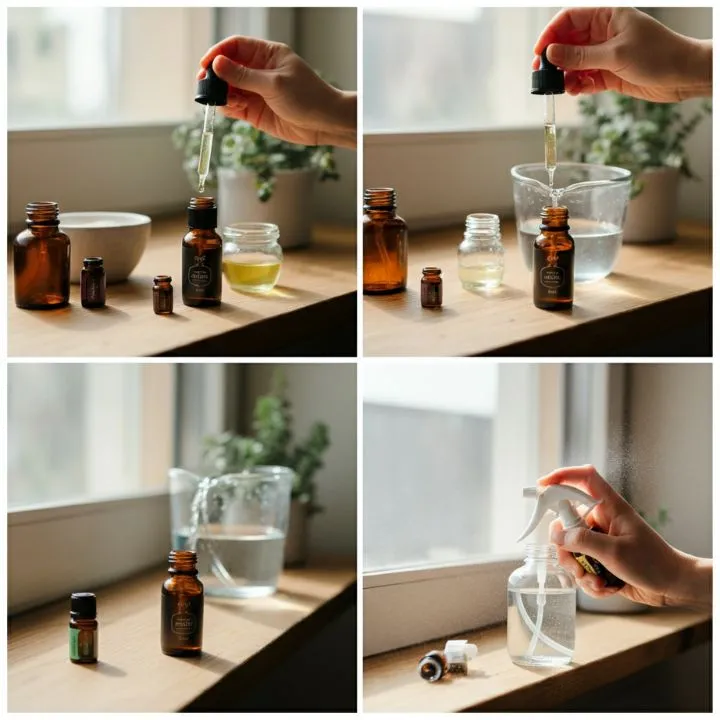
- Diffuser Method: Want to protect indoor spaces? Add 5–10 drops of essential oil to your diffuser and let it work its magic! Oils like peppermint and lavender not only keep gnats at bay but also fill your room with a fresh, lovely scent. Place the diffuser in areas where gnats tend to linger, such as the living room or kitchen.
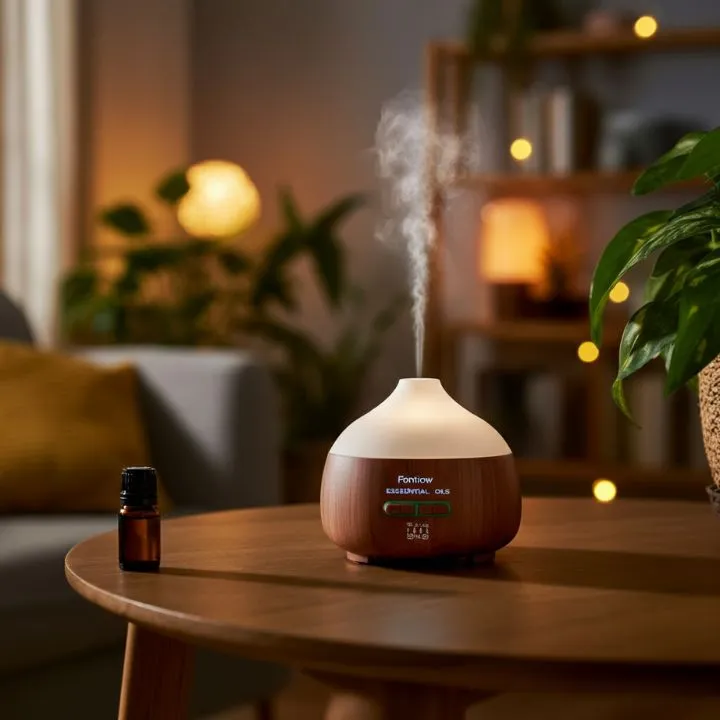
- Soaked Cotton Balls: For a quick, fuss-free method, soak a few cotton balls in essential oil and place them strategically in problem areas. Try spots like near your houseplants, trash cans, or pantry. Lemongrass and tea tree oils work wonders here, and as a bonus, they keep your space smelling clean and inviting!
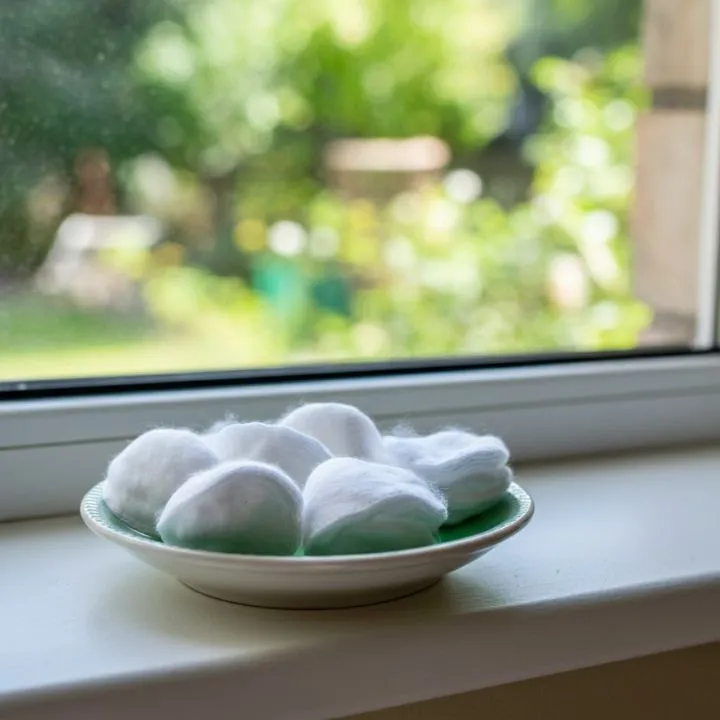
- Outdoor Applications: Need protection in your garden or backyard? Mix essential oil with a carrier oil or water and spray it on outdoor furniture, plants, or around gathering spots. Citronella and eucalyptus oils are excellent picks for outdoor use. If you’re hosting an evening gathering, consider placing bowls of water mixed with a few drops of essential oil around your outdoor area to create a natural barrier against gnats.
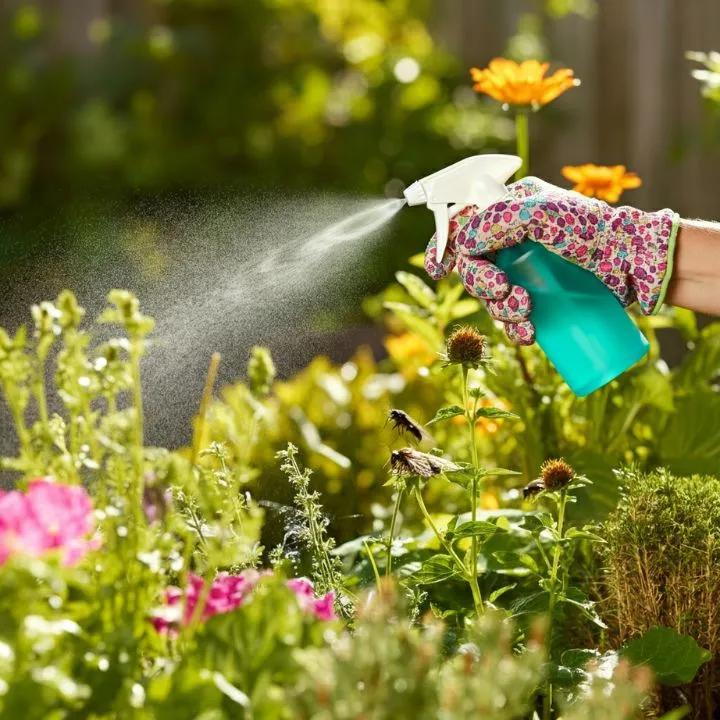
Must Read: How to Get Rid of Drain Flies
Precautions When Using Essential Oils
Essential oils are natural and powerful, but a little caution goes a long way when using them. Follow these tips to ensure safe and effective use in your home.
- Dilution guidelines to prevent skin irritation: Essential oils are highly concentrated, so diluting them before use is a must! To avoid skin irritation, mix a few drops with a carrier oil like coconut, almond, or jojoba oil. A good rule of thumb is 1–2 drops of essential oil per teaspoon of carrier oil. If you’re making a larger batch for sprays, 10–15 drops per ounce of water is a safe starting point.
- Safety tips for use around children and pets: While essential oils can benefit the whole family, some oils aren’t safe for kids or pets. For example, oils like peppermint and tea tree should be avoided for younger children and certain animals. Always use essential oils in well-ventilated areas and keep them out of reach. When in doubt, consult a professional or veterinarian about which oils are safe for your situation.
- Proper storage of essential oils: Storing essential oils the right way ensures they stay fresh and effective. Keep them in dark, glass bottles to protect them from sunlight, which can degrade their quality. Store the bottles in a cool, dry place, away from heat sources and curious little hands. This keeps your oils potent and safe to use over time!
By taking these simple precautions, you can enjoy the benefits of essential oils with peace of mind. Treat them with care, and they’ll become a safe, reliable tool in your eco-friendly lifestyle!
Also Read: Best homemade fruit fly trap DIY
Additional Tips to Keep Gnats Away
Gnats can be stubborn little pests, but with a few extra measures, you can keep them out for good. Here are some additional tips to consider alongside your essential oils routine.
- Maintain cleanliness and eliminate breeding grounds: Cleanliness is your first line of defense! Gnats are drawn to food scraps, dirty dishes, and trash, so giving your kitchen and trash bins regular attention is a must. Wipe down counters, take out the trash, and don’t forget to clean your drains—stagnant water and food particles in sink pipes are prime breeding spots for gnats.
- Use vinegar traps alongside essential oils for maximum effectiveness: Vinegar traps are an easy and effective way to catch lingering gnats. Simply fill a small bowl with apple cider vinegar and add a drop of dish soap. Cover the bowl with plastic wrap and poke a few tiny holes in it. The gnats can’t resist the scent of vinegar, but once they go in, they can’t get out. Combining this method with essential oils gives you double the pest-fighting power!
- Regular application to ensure lasting results: Consistency is key! Whether it’s spraying essential oil mixtures or replacing vinegar traps, regular application ensures the gnats stay away long-term. Essential oil sprays may lose their potency over time, so reapply every few days or after rain if you’re using them outdoors. Stay consistent, and you’ll enjoy a gnat-free space in no time.
With these tips, you’re well on your way to creating a clean, gnat-free environment. Combine strategies for the ultimate pest prevention—and enjoy a healthier, happier home!
Suggestions for Effective Use:
- Step-by-step guides for DIY solutions: To get the most out of essential oils for gnat control, it helps to follow some tried-and-true tips. These suggestions will ensure effective results while keeping things simple and safe.
- Reputable brands for essential oils: Not all essential oils are created equal, so opt for brands that emphasize purity and sustainability. Reputable names include doTERRA, Plant Therapy, and Aura Cacia, known for their high-quality, non-toxic options. Look for products labeled as 100% pure with no synthetic fillers.
With these steps, you can confidently integrate essential oils into your routine to keep gnats at bay. Whether you’re mixing sprays, investing in quality products, or brushing up on the science, you’re setting yourself up for success—and a greener, gnat-free environment!
